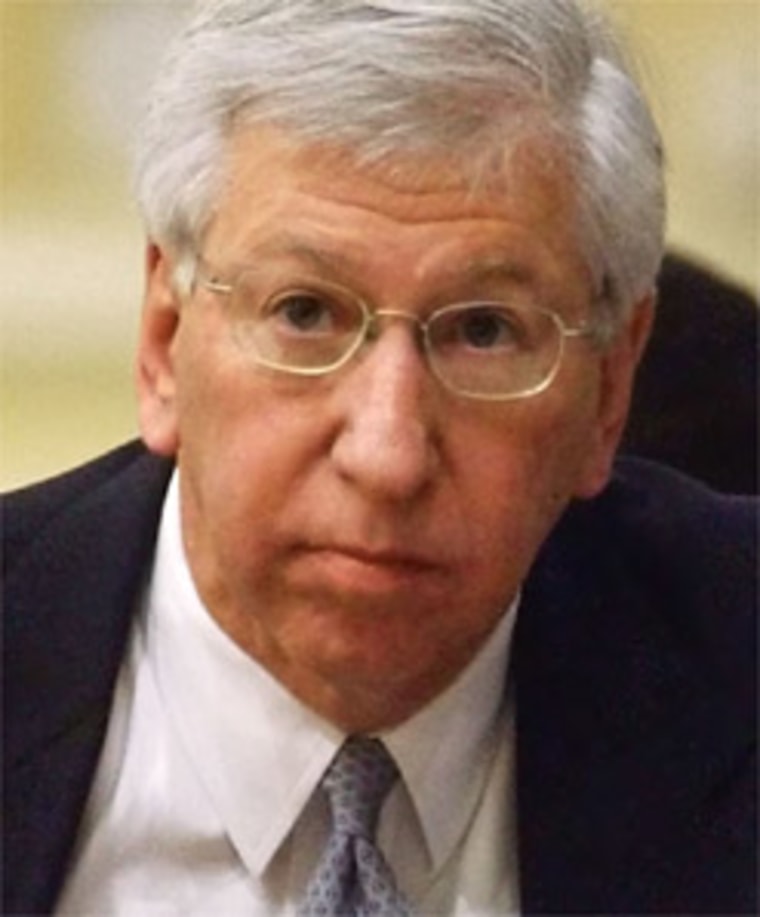NCAA President Myles Brand left open the possibility yesterday that college sports' governing body for the first time is willing to work with both the NBA and shoe companies to improve amateur basketball, which has come under increasing criticism this year.
In remarks made at Hampton University, Brand said, "Maybe working together with the NBA and lots of others -- USA Basketball, the [Amateur Athletic Union], the National Federation of High Schools -- and including key elements such as the shoe companies working all together, is there something we can do to help improve that pre-collegiate environment?"
Many high school and college coaches have long called for representatives from all levels of the basketball world to move toward reforming amateur basketball, which critics say exposes teenagers to many tempting outside influences while doing little to prepare them for life outside of athletics. Comments by Brand and NBA Commissioner David Stern, who this year said the NBA would consider becoming involved in helping secondary schools to better prepare their athletes academically, are seen by some basketball sources as a significant move in the right direction.
Brand said he and Stern discussed the issue at a summit last year in Chicago and that another meeting is planned next month. Sonny Vaccaro, who over the past 25 years has directed basketball grassroots efforts at Nike, Adidas and now Reebok, welcomes open discussion.
"I beg for an opportunity like this, to talk to the people that Mr. Brand is talking to, to get together in a room and eliminate the politics to work this out," Vaccaro said. "When that happens, it will make my life complete in this game. I would welcome it. If everyone can make peace and make this work with the kids involved, then I feel that my cycle would have been completed. This would be a great way to walk away. We can make this work."
The announcement by Brand comes amid a year-long series in The Washington Post on the more controversial aspects of player development. The series included pieces on how foreign players arrive in the United States, prep schools with powerful teams but questionable academic credentials, the financial inducements used by AAU teams to recruit players as young as 9 and how one 16-year-old player and his family have been changed by the AAU experience.
In the past, the NCAA has had little control over youth basketball, specifically high-profile summer league events that are run and funded by shoe companies beyond the oversight of any educational entities. For the most talented teenage players, the importance of summer league basketball has made the traditional high school basketball season almost irrelevant. One of the nation's best high school players, sophomore Renardo Sidney from California, has made his reputation strictly by playing in high-profile summer league events and said he does not feel he necessarily needs high school basketball to achieve his goal of playing in the NBA.
Last year, the NBA decided players must be 19 years old and one year out of high school before entering the draft, thus prohibiting players from going directly from high school to the pros. The intent was that players would spend at least a year in college before turning professional, but this summer, a handful of the top high school seniors were contemplating playing overseas for a year instead of attending college. That way, they could sign lucrative shoe contracts and earn paychecks rather than spending a year under the auspices of the NCAA, which prevents athletes from being compensated for their performances.
"It's one of the most recalcitrant and difficult problems we now face in all of college sports, in part because the NCAA has no control over what happens before college by definition," Brand said. Having student-athletes not capable of making the grade "makes it difficult for the coach and it makes it difficult for the young people who are being recruited, too. They are not always getting the straight information."
